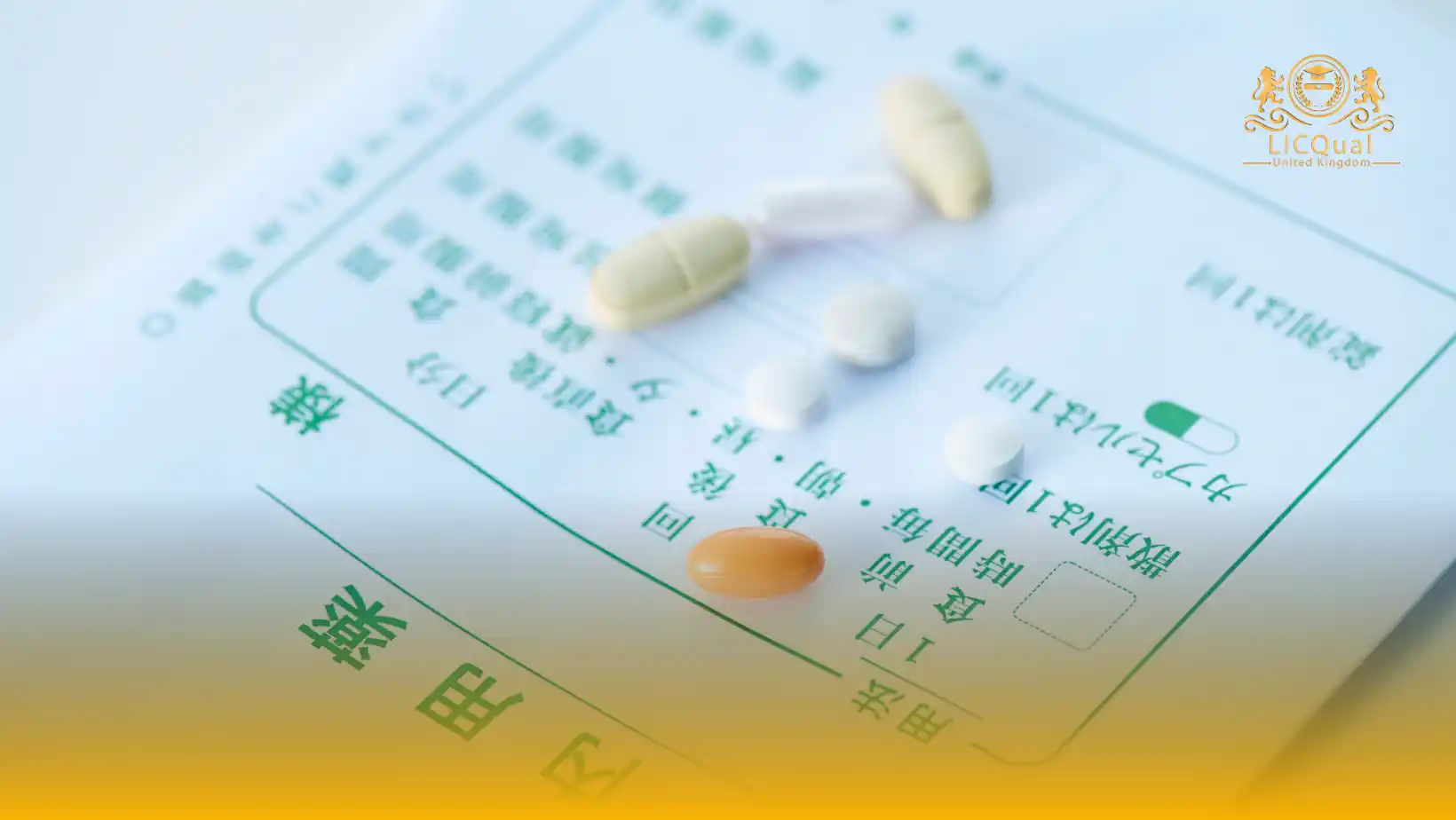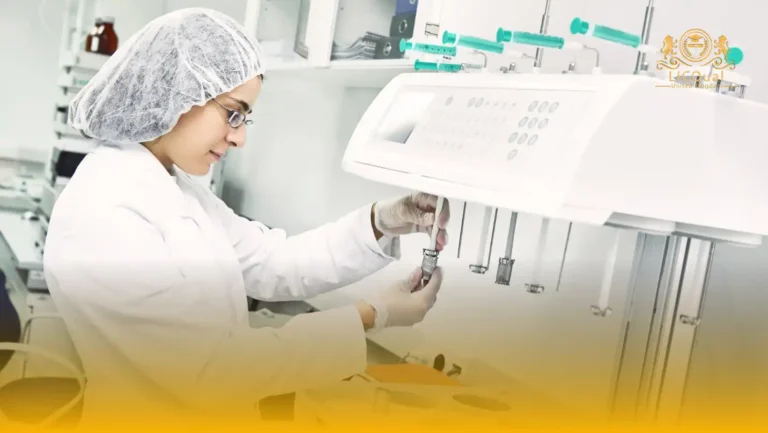The LICQual Level 6 Diploma in Pharmacoeconomics (D Pharmacoeconomics) is a prestigious qualification designed for professionals seeking to advance their careers within the pharmaceutical, healthcare, and health economics sectors. This advanced programme provides learners with comprehensive knowledge of the economic evaluation of medicines, cost-effectiveness analysis, health technology assessment, and resource allocation in healthcare systems. By completing this diploma, learners enhance their expertise, strengthen decision-making capabilities, and gain recognized Continuing Professional Development (CPD) credentials.
This Level 6 Diploma is particularly suitable for healthcare professionals, pharmaceutical economists, policy advisors, and those involved in healthcare management or market access. Learners will develop the skills to critically analyse pharmacoeconomic data, evaluate healthcare interventions, and support evidence-based policy and clinical decisions. The curriculum combines theoretical frameworks with practical application, ensuring learners are well-equipped for leadership and specialist roles in healthcare economics.
To maintain the highest standards of learning, centres delivering this qualification must employ competent and qualified staff and provide all necessary resources, including learning materials, research tools, and access to relevant databases. Centres are expected to foster a high-quality learning environment, offering guidance, support, and practical insights to ensure learner success.
With a focus on professional development, analytical expertise, and industry relevance, the LICQual Level 6 Diploma in Pharmacoeconomics is ideal for learners who wish to elevate their careers, make impactful contributions to healthcare decision-making, and gain a competitive edge in the global pharmaceutical and healthcare sector.
Course Overview
Qualification Title
LICQual Level 6 Diploma in Pharmacoeconomics (D Pharmacoeconomics)
Total Units
6
Total Credits
120
GLH
480
Qualification #
LICQ2201192
Qualification Specification
To enroll in the LICQual Level 6 Diploma in Pharmacoeconomics (D Pharmacoeconomics), applicants must meet the following criteria:
|
Qualification# |
Unit Title |
Credits |
GLH |
|---|---|---|---|
|
LICQ2201192-1 |
Introduction to Pharmacoeconomics |
20 |
80 |
|
LICQ2201192-2 |
Health Technology Assessment (HTA) |
20 |
80 |
|
LICQ2201192-3 |
Cost Analysis and Budget Impact Modelling |
20 |
80 |
|
LICQ2201192-4 |
Pharmacoeconomics Data Analysis and Research Methods |
20 |
80 |
|
LICQ2201192-5 |
Market Access and Healthcare Policy |
20 |
80 |
|
LICQ2201192-6 |
Advanced Pharmacoeconomics Project |
20 |
80 |
By the end of this course, learners will be able to:
Unit 1: Introduction to Pharmacoeconomics
By the end of this unit, learners will be able to:
- Explain the principles and concepts of pharmacoeconomics in healthcare decision-making
- Analyse cost-effectiveness, cost-utility, and cost-benefit frameworks
- Evaluate the economic impact of pharmaceutical interventions on healthcare systems
- Apply pharmacoeconomic reasoning to real-world clinical and policy scenarios
Unit 2: Health Technology Assessment (HTA)
By the end of this unit, learners will be able to:
- Demonstrate understanding of HTA frameworks and methodologies
- Critically assess clinical evidence, safety, and efficacy data for healthcare interventions
- Evaluate economic and social implications of introducing new healthcare technologies
- Apply HTA principles to inform policy, reimbursement, and resource allocation decisions
Unit 3: Cost Analysis and Budget Impact Modelling
By the end of this unit, learners will be able to:
- Perform cost-minimisation, cost-benefit, cost-effectiveness, and cost-utility analyses
- Develop and evaluate budget impact models for pharmaceutical interventions
- Analyse financial implications of healthcare interventions at organisational and system levels
- Interpret economic data to support strategic decision-making in healthcare
Unit 4: Pharmacoeconomics Data Analysis and Research Methods
By the end of this unit, learners will be able to:
- Design pharmacoeconomic studies and select appropriate research methodologies
- Analyse data using statistical and modelling techniques relevant to health economics
- Critically evaluate research findings for accuracy, reliability, and applicability
- Present pharmacoeconomic results effectively for academic, clinical, or policy audiences
Unit 5: Market Access and Healthcare Policy
By the end of this unit, learners will be able to:
- Explain the role of pharmacoeconomics in market access and healthcare policy development
- Analyse regulatory, pricing, and reimbursement frameworks affecting pharmaceutical products
- Evaluate strategies for successful market access and stakeholder engagement
- Apply pharmacoeconomic evidence to inform policy and commercial decisions
Unit 6: Advanced Pharmacoeconomics Project
By the end of this unit, learners will be able to:
- Plan and execute an independent research project in pharmacoeconomics
- Critically review scientific literature and economic data relevant to the project topic
- Apply analytical and modelling skills to evaluate healthcare interventions
- Present findings professionally, demonstrating advanced reasoning and decision-making capabilities
The LICQual Level 6 Diploma in Pharmacoeconomics (D Pharmacoeconomics) is designed for professionals and students who want to master the economic evaluation of medicines and healthcare systems. This internationally accredited qualification is ideal for pharmacists, healthcare managers, policy makers, and researchers who aim to strengthen their expertise in pharmacoeconomics. With flexible online study and global recognition, it is perfect for anyone seeking career advancement, credibility, and practical skills in healthcare economics and pharmaceutical policy.
1. Practicing Pharmacists
- Gain advanced knowledge of pharmacoeconomics and healthcare resource allocation
- Strengthen compliance with international healthcare standards and patient safety protocols
- Enhance credibility with an internationally recognized qualification
- Prepare for leadership roles in hospitals, clinics, and pharmaceutical organizations
- Stay updated with evolving pharmacoeconomics practices and global healthcare policies
2. Pharmacy Students and Graduates
- Build a strong foundation in pharmacoeconomics before entering the workforce
- Improve employability with a Level 6 diploma UK recognized
- Learn practical applications of cost‑benefit and cost‑effectiveness analysis
- Gain confidence in applying pharmacoeconomic principles in real‑world settings
- Add a career‑ready certification to your academic portfolio
3. Healthcare Professionals
- Understand pharmacoeconomics across diverse healthcare systems
- Strengthen skills in patient safety, drug utilization, and therapeutic monitoring
- Expand career opportunities with international accreditation
- Apply pharmacoeconomic principles in multidisciplinary healthcare teams
- Improve patient trust through safe and cost‑effective medicine delivery
4. Healthcare Managers and Administrators
- Deepen expertise in healthcare economics and policy development
- Strengthen oversight of ethical and professional healthcare practices
- Gain practical tools for monitoring and evaluating healthcare performance
- Improve career advancement opportunities in healthcare administration
- Enhance credibility with a specialized diploma in pharmacoeconomics
5. Pharmaceutical Researchers
- Deepen expertise in economic evaluation of drug development and clinical trials
- Strengthen research credibility with accredited certification
- Gain practical tools for designing and evaluating pharmacoeconomic studies
- Improve career advancement opportunities in pharmaceutical R&D
- Enhance knowledge of evidence‑based medicine and healthcare informatics
6. Policy Makers and Government Officials
- Gain insights into pharmacoeconomics for healthcare policy and decision‑making
- Strengthen ability to evaluate cost‑effectiveness of national health programs
- Learn practical tools for resource allocation and budget impact analysis
- Improve credibility with a specialized diploma in healthcare economics
- Contribute to sustainable healthcare systems in developing and developed nations
7. International Candidates
- Earn a globally recognized pharmacoeconomics qualification
- Access flexible online study from anywhere in the world
- Meet international accreditation standards for healthcare practice
- Strengthen career prospects in diverse healthcare and pharmaceutical markets
- Gain cross‑border knowledge of pharmacoeconomics and healthcare systems
To deliver the LICQual Level 6 Diploma in Pharmacoeconomics (D Pharmacoeconomics), centres must meet high standards to ensure learners receive a quality learning experience. Centres are expected to:
- Employ competent and qualified staff with relevant academic qualifications and professional experience in pharmacoeconomics, healthcare, pharmaceuticals, or health policy.
- Provide access to up-to-date learning resources, including textbooks, journals, research databases, and software tools relevant to pharmacoeconomics and health technology assessment.
- Maintain appropriate facilities, including classrooms and access to computer labs or online learning platforms, to support theoretical and practical learning.
- Implement robust assessment and feedback processes to monitor learner progress and ensure achievement of learning outcomes.
- Support learners with digital and analytical tools, such as modelling software, statistical packages, and simulation resources for pharmacoeconomic analysis.
- Promote a culture of Continuing Professional Development (CPD), encouraging staff and learners to stay updated with industry advancements, regulations, and new methodologies.
- Comply with national and international quality standards, ensuring all teaching, assessment, and learning practices align with recognised industry and educational standards.
Meeting these requirements ensures that centres provide a high-quality, professional learning environment, enabling learners to develop advanced skills in Pharmacoeconomics, healthcare evaluation, and policy-making, and achieve successful career progression.
Assessment and Verification
All units within this qualification are subject to internal assessment by the approved centre and external verification by LICQual. The qualification follows a criterion-referenced assessment approach, ensuring that learners meet all specified learning outcomes.
To achieve a ‘Pass’ in any unit, learners must provide valid, sufficient, and authentic evidence demonstrating their attainment of all learning outcomes and compliance with the prescribed assessment criteria. The Assessor is responsible for evaluating the evidence and determining whether the learner has successfully met the required standards.
Assessors must maintain a clear and comprehensive audit trail, documenting the basis for their assessment decisions to ensure transparency, consistency, and compliance with quality assurance requirements.







